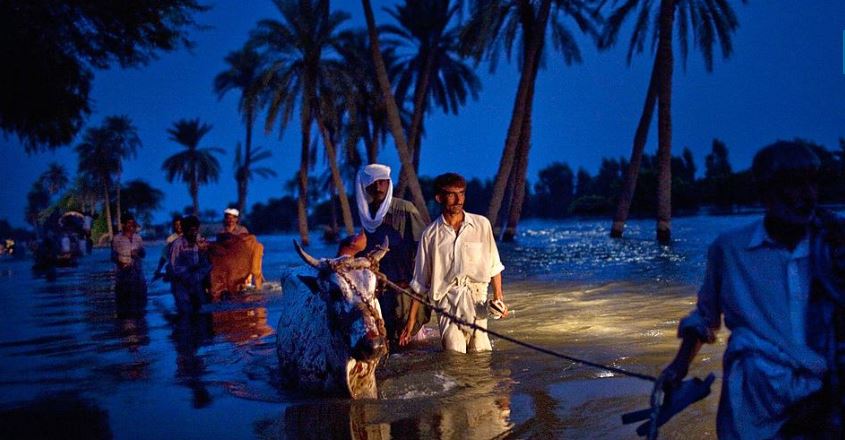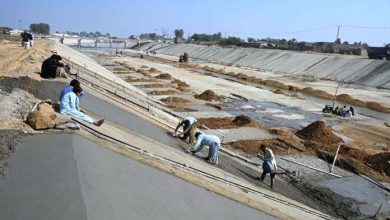#COP27: Asian Development Bank to Provide $500 million to Pakistan to Combat #ClimateChange:
#ClimateAction: ADB Expands Financing Support to Developing Countries for Climate Adaptation and Resilience
#ClimateAction: ADB Expands Financing Support to Developing Countries for Climate Adaptation and Resilience
Islamabad: As an ongoing effort to help developing countries for climate adaptation and resilience, Manilla-based lender, Asian Development Bank (ADB), is likely to approve a loan as much as $500 million in December to a climate-ravaged South Asian country, Pakistan, which faced losses of nearly $40 billion from disastrous flooding between June and August 2022.

In Pakistan, torrential rains and a combination of riverine, urban, and flash flooding caused by historic monsoon rains washed away roads, crops, infrastructure and bridges, killing over 1,000 people and affecting more than 33 million, over 15% of the country’s 220 million population.
Final estimates about the damage from disastrous floods are set be more than $30 billion, according to the Pakistan’s Planning Ministry’s Post-Disaster Needs Assessment (PDNA) report that says the reconstruction works will need are over $16 billion.
Under this hazardous situation, ADB’s current support packages aims to improve a coastal drainage system in Pakistan to help prevent another catastrophic flooding.
According to official’s sources, ADB is expected to deliver climate resilience financing in the form of new loans of up to $5 billion to countries in Central and West Asia as part of its growing push to help countries, like Pakistan, withstand the impact of floods, droughts and extreme weather.
“The whole world is facing a kind of climate emergency,” Yevgeniy Zhukov, the ADB’s Director General for Central and West Asia that includes Pakistan, said in an interview in Karachi.
“We are trying to refocus our investments, not just in Pakistan, but in the region, on focusing more on climate change”, he noted.
The lender, which earlier this month delivered $1.5 billion to Pakistan for social protection and food security programs after the devastating flooding, is looking to approve as much as $500 million in December to the climate-ravaged nation, which has less than %1 contribution in global warming.
Zhukov further stated that ADB which is currently in the progress of projects worth as much as $25 billion in the region is reviewing its next year pipeline for climate change impact.
The bank, which has been traditionally invested in infrastructure, transport and energy projects is making more room for disaster resilience and transition to renewable energy, the bank’s director general for Central and West Asia mentioned.
“We have to do something, otherwise if we just keep doing kind of things as usual and just continue our kind of infrastructure investments and then next monsoon this infrastructure will be washed away,” said Zhukov.
Around the world, efforts and actions are ongoing to mitigate global warming. The Intergovernmental Panel on Climate Change’s (IPCC) Sixth Assessment Report 2022 found “Climate change is affecting nature, people’s lives and infrastructure everywhere. It’s dangerous and pervasive impacts are increasingly evident in every region of our world”.
To help the developing countries to combat the pervasive impacts of global warming, the Asian Development Bank (ADB) in 2021 announced to deliver climate financing to its developing member countries (DMCs) to $100 billion from 2019–2030.
“The battle against climate change will be won or lost in Asia and the Pacific,” said ADB President Masatsugu Asakawa. “The climate crisis is worsening daily, prompting many to call for increased climate finance. We are taking action to meet this call by elevating our ambition to $100 billion in cumulative climate finance from our own resources by 2030”, he added.
Similarly, the World Bank Group also delivered a record $31.7 billion in fiscal year 2022 (FY22) in September 2022.
“In our last fiscal year ending June 2022, we provided a record $31.7 billion to countries to identify and enable high-priority climate-related projects as part of their development plans.” said David Malpass, President of the World Bank Group.
“We will continue providing solutions to pool funding from the global community for impactful and scalable projects that reduce GHG emissions, improve resilience, and enable the private sector”, he emphasized.
For raising more finance to help developing countries, like Pakistan, to cope with climate impacts, and to foster action-oriented discussions in the global community, UN is organizing COP27 summit in Egypt, in city of Sharm El-Sheikh on 6-18 November.
Five key issues on agenda of #COP27, will be: nature, food, water, industry decarbonization and climate adaptation. Some 198 countries that have signed the UN Framework Convention on Climate Change will be attending the global event as the UN is urging the world’s industrialized nations to ‘lead by example’ by taking ‘bold and immediate actions’.
“A third of Pakistan flooded. Europe’s hottest summer in 500 years. The Philippines hammered. The whole of Cuba in blackout. And … in the United States, Hurricane Ian has delivered a brutal reminder that no country and no economy is immune from the climate crisis,”, UN Secretary-General António Guterres said while speaking to journalists in New York about the importance of the upcoming COP27 climate summit.







